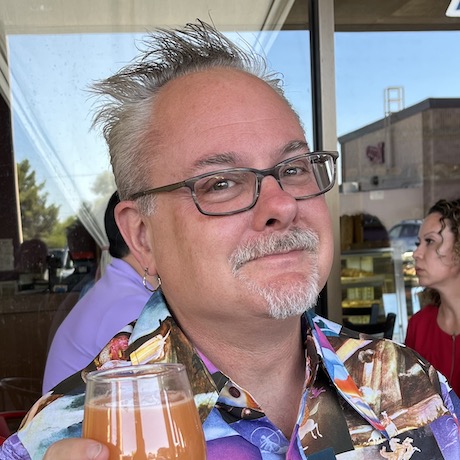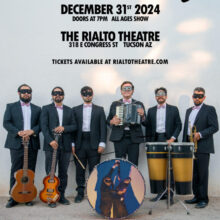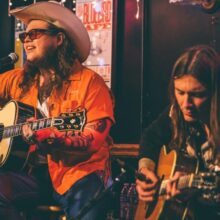
Q&A: Hannah Levin + El Toro
I’ve known Kurt B. Reighley, a.k.a. DJ El Toro for more than twenty years. We met in the late ‘90s in Seattle when both were working as freelance music journalists for various publications in and outside of the Pacific Northwest. Our shared career trajectory eventually led us to the airwaves of KEXP in Seattle and later to Tucson and KXCI.
Reighley’s work as a contributor to Rolling Stone, Details, No Depression, and The Advocate meant that he’s interviewed everyone from Rob Halford of Judas Priest and Loretta Lynn to the Village People and Sharon Jones. His truly eclectic taste and multi-genre musical knowledge made him a natural fit for KXCI when he took to our airwaves in 2017.
He recently debuted his new show, Inside/Out on Friday nights from 6-8 pm and I wanted to take some time to chat with him about the inspiration for this vibrant new programming.
1) What was the impetus behind Inside/Out and what are your ambitions in terms of how you want this fresh programming to unfold?
LGBTQ+ representation and visibility, even as modest as it was, played a huge role in shaping my own identity as I grew up during the early years of the AIDS crisis. I remember seeing TV coverage of a gay pride march on the evening news in 1979 (before the plague changed everything) and realizing that I was not alone in the world, and my life had just as much value as anyone else’s. Unfortunately, many of the people who guided me along my journeys, as a gay man and a music lover, didn’t live long enough to see us reach this point in popular culture, where so many different types of LGBTQ+ artists have broader platforms than ever before. “Inside/Out” is my way of honoring the legacies of those who came before me, while “paying it forward” by making our voices and feelings audible to whomever needs to hear them.
My ambition is to host a show that reflects the breadth, depth, and diversity of our community. I’m already working on some short artist interview segments that reflect that commitment. While I want to keep the focus on music, my plan (if I can ever have in-studio guests again!) is to welcome local or visiting guest programmers to share other points of view.
2) How do you feel your background in music writing/journalism has informed your work as a DJ?
Music is how I make sense of the world, and sharing my enthusiasm for music is how I bond with others. That’s what inspired me to pursue an editorial career in music. It used to make me crazy to see people ask artists the same questions over and over again in interviews, so it’s always been important for me to “do the homework” and dig deep when I’m writing about someone else. I aspire to bring that same level of excitement and attention to detail to every DJ gig and radio show I play. My writing career has also afforded me countless opportunities to talk about and reflect upon music with other people I admire, which in turn enriches my ideas and opinions.
3) What is one of your earliest memories of falling in love with music?
I always joke that seeing Liza Minnelli perform “Copacabana” on The Muppet Show is what made me gay. But seriously, from a very young age I realized that singing made me feel better, more alive. In third grade, I sang a Carpenters song acapella at my teacher’s going away party, and she cried and hugged me – that definitely solidified the emotional power of music in my mind.
4) How do you approach playlist curation?
There are so many factors, but the crux of all my programming, whether I’m making a mixtape or DJing in a bar or hosting a radio show, is reconciling my wildly varied tastes and short attention span within the parameters of a particular platform, and the moment in time, and what the audience will allow. That said, since some on-air experiments in early 2016 at my previous station (KEXP Seattle), I have been very intentional about limiting the number of white cisgender men – especially the ones who play guitars and sing about their feelings in English – in my sets, and seeking out more music by people who don’t look and sound like me.
5) What do you do when you’re not on the air (this can be professionally or personally or both)?
I’m a Senior Stewardship Officer for the University of Arizona, part of the Philanthropy and Alumni Engagement team. Health Sciences (UAHS) is my area of focus. I’m responsible for making sure that people who donate to UAHS colleges, units and centers are thanked for their gifts and updated on the impact of their generosity. I love talking to our researchers and learning about advances in medicine, as well as hearing stories from our students about their journeys to and through school – and the change they hope to bring about in our world.




